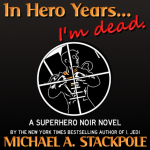Ebooks: How Many Are We Really Selling?
It’s no secret that I have been a strong proponent of ebooks. I’ve encouraged every author I know to convert their backlists into ebooks to be sold via their own websites, via Amazon and Barnes & Noble, and any other site that makes a reasonable offer. In one post here, I even lined-out the Nine clauses I felt every ebook contract should have.
One key point in all of this has been a simple reality about the world of ebooks: ebook sales are immune to audit.
Book contracts have a clause in them which allows an author who believes there is an error in accounting to ask for an audit. An auditor takes the publishers’ records and reconciles them with the statements sent to the author. If the audit uncovers an error of more than 10%, the publisher pays for the audit and pays the author the missing money. Granted, my knowledge in this area is far from encyclopedic, but I’ve never heard of an author being required to pay for an audit.
Print book numbers can be audited because they leave a rather ample paper trail. We have the print numbers and shipping weights from the printer, so we can calculate how many books were shipped to the warehouse. We have the orders and invoices, as well as the shipping manifests for when the books left the warehouse. We have the records of the returns. Because of all these records, we can forensically recreate the print run and shipping scenario, which will tell us if the numbers in the royalty statement are accurate or not.
This is not true with ebooks. While you might think that a single book which is a one megabite file which burns a full gigabyte of bandwidth in a month of downloads would account for 1,000 downloads, that’s simply not true. It could be one guy trying unsuccessfully to download that file, and it takes him 2,000 tries to do so. Granted, delivery rate failure is not usually that extreme. As nearly as I can tell from my own website, it runs maybe 2%, and that usually involves firewalls, wonky wifi or a cat playing with the keyboard.
Another scenario is a bit more sinister. Imagine a programmer or hacker who manages to intercept orders coming from customers and going to consumers. He diverts the pay to his own account, vanishes the order itself, and still sends a confirmation on to the delivery computer so the customer gets his file. Let’s say he does this with one in 10,000 orders on a random basis. The chances of locating that problem would be tiny. While I don’t think this is what is happening anywhere, I use it as an illustration of how simple it would be for orders to be diverted.
For authors, the only way to get a handle on the validity of sales numbers is to compare sales across platforms. In my case I have information from my website store, I have Barnes & Noble numbers, Kindle numbers and iBookstore numbers. When I compare them I get a picture of sales that conforms, more or less, to the market statistics which are commonly held as valid: Kindle is roughly 70% of the market, B&N is 15%, and everything else covers the last 15%—not including independent website sales since the market statistics don’t factor them in. My own website numbers, however, have sales patterns that match the others, so I’m reasonably confident in the data I’m getting.
An increasing number of authors are doing what I’m doing; and this is causing us to wonder very seriously about the ebook sales figures coming out of traditional publishing. The numbers being reported are seriously out of whack with what we’re experiencing in selling our own work. Let me outline what’s going on, then I can point out some possible scenarios to explain what we’re seeing.
I’ll use two of my books, When Dragons Rage and The Grand Crusade, as examples. According to Bantam Books, in the first half of 2010 WDR sold 40 ebooks. In the second half it sold 46 copies, roughly a 13% growth rate. The Grand Crusade sold 44 and 52 respectively, a 15% growth from the first half of the year to the second. Those are respectable growth rates, especially in slow economic times. Someone would have to be a fool to complain about them.
The problem here is this: my Kindle sales volume doubled between the first half of 2010 and the second. It doubled again in December of 2010. My worst-selling novel-length work offered on the Kindle beat the sales Bantam reported during that same period by 10%. In the month of December alone, In Hero Years… I’m Dead sold more than either of the Bantam Books did for the entire last half of 2010. Talion: Revenant, a book that’s far older than When Dragons Rage or The Grand Crusade, also smoked their sales in the month of December.
There are a variety of explanations for this sort of data.
1) As L. E. Modesitt has pointed out, it could just be that other authors and I do a better job pushing our own work than the world’s largest commercial publishing company publishing company does. While this may be true, it points to a rather bleak future for large publishing companies and authors who turn their entire catalogs over to them for ebook translation and sales.
2) E-retailers are passing faulty numbers on to publishers.
3) Publishers are passing faulty numbers on to authors.
(Neither #2 or #3 require malice, just folks making errors while preparing spreadsheets. Nor are these two choices exclusive of each other, and together they could be compounding the effect.)
4) Because people know that ebook sales are immune to audit, this fact is being use to enrich someone illegally at the expense of authors and/or publishers.
The fact is that anomalies could be the result of any number of those explanations, or others I’ve not thought of. What disturbs me greatly is that E-retailers can report sharp increases in ebook revenue—that mythical tide that raises all boats—and yet we have boats that don’t rise. The fact that the boats which appear to be dead in the water are the boats run by traditional publishing is less than encouraging.
Ultimately no author can know what’s going on without data. This is how the Internet and readers can help out. If you decide that you’re going to buy any of my books for the Kindle which are put out by any publisher other than Stormwolf.com (that’s me) please go to this page of links and click on the appropriate link. It’s page of Amazon Associate links, and sales through those links will let me see how many copies are selling. (And, yes, Amazon will pay me 4-6% of the cover price of each of those books which, curiously enough, is more than I make off either the Star Wars® or BattleTech® books—there’s a story for another time.)
I don’t really know why ebook numbers coming from traditional publishers are out of line—and in speaking with other authors from a variety of publishers I’ve learned that they’ve noticed these anomalous numbers as well. The true relevance of all of this is simple: whether traditional publishing is incompetent at actually selling ebooks, or unable to properly account for ebook sales; authors are being forced to see publishers as an unnecessary impediment standing between them and their audiences, and them and their getting paid.
The end is coming. The apocalyptic view of publishing’s future is what I’ll explore in tomorrow’s post.
Note: More on the ebook royalty problem from Kristine Rusch.
Writing up this series of blog posts is cutting into my fiction writing time. If you’re finding these posts useful, and haven’t yet gotten yet snagged my latest novels, please consider purchasing a book. Nice thing about the new age of publishing is that you become a Patron of the Arts, letting writers know what you’d like to see more of simply by voting with a credit card. (Authors charge less when they sell direct, so you save, we make more, and that frees us to write more.)
 My latest paper novel, At The Queen’s Command, is available at book retailers everywhere.
My latest paper novel, At The Queen’s Command, is available at book retailers everywhere.

My digital original novel, In Hero Years… I’m Dead is available for the Kindle and in the epub format for all the other readers, including the Nook, iPhone, iPod Touch and iPad. (Imagine the Batman, Watchmen and Kick-Ass movies all rolled into one, as written by Dashiell Hammett, and you’ve pretty much got the idea of the book. Oh, and with some satire and political commentary slipped in for irony.)



 13. Apr, 2011
13. Apr, 2011 








10 Responses to “Ebooks: How Many Are We Really Selling?”